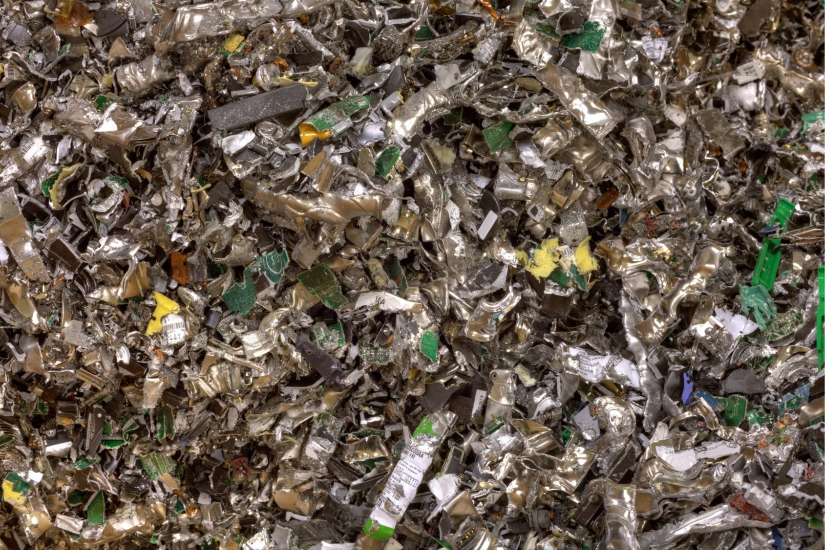Why is data destruction important? Because simply deleting your files isn’t enough—and when sensitive information falls into the wrong hands, the consequences can be devastating. Whether you’re an individual clearing out an old laptop or a business retiring dozens of servers, properly destroying data ensures your personal information, trade secrets, or customer records don’t come back to haunt you.
This guide is for both everyday users and business owners who want to understand how to truly erase data—and why it matters. In today’s digital-first world, data lives on hard drives, phones, USBs, and cloud backups. If it’s not destroyed the right way, it’s not gone.
What Is Data Destruction?
Types of Data Destruction
There’s more than one way to destroy data, and knowing the difference helps you choose the right method.
- Digital Wiping: This data destruction method involves overwriting data on a storage device so it can’t be recovered. Good for reusing devices—but must be done using proper software.
- Physical Destruction: This includes shredding, crushing, or incinerating devices so they’re permanently unreadable. It’s often used for end-of-life equipment.
All of these methods serve a single goal: make the data truly inaccessible—forever.
Hard Drive, SSD, and Mobile Device Concerns
Different devices need different destruction methods:
- Hard Drives: Can be wiped, degaussed, or shredded. Degaussing won’t work on solid-state drives.
- SSDs: Must be shredded or wiped using tools designed specifically for flash storage.
- Phones & Tablets: Contain flash memory and often require specialized destruction or wiping.
Ignoring the right method could leave your data vulnerable, even if the device looks “dead.”
Difference Between Deleting and Destroying
Many people assume dragging a file to the trash and clicking “delete” is enough. It’s not.
When you delete a file, your computer removes the reference to it—not the file itself. The data still exists on the drive until it’s overwritten, which means someone with basic recovery software can often bring it back.
- Metadata Stays: Information about when a file was created, who accessed it, and even thumbnails can remain.
- Residual Data: Partial copies, backups, and cached files might still be hiding deep in the system.
If you’re getting rid of a device, deleting is like closing the door—it’s not locking it.
Why Data Destruction Matters for Everyone
Why is data destruction important? Because anyone can be a target, and the risks are real—whether you’re an individual clearing out a drawer full of old tech or a company offloading outdated servers. If sensitive data isn’t properly destroyed, it can come back to harm you.
Personal Risks of Poor Data Disposal
Failing to properly destroy your data isn’t just careless—it can lead to serious consequences:
- Identity Theft: Old devices often contain personal info like Social Security numbers, addresses, and birthdates—prime material for identity thieves.
- Financial Fraud: Saved passwords, banking apps, and tax records can easily be recovered from improperly wiped devices.
- Private Photos, Medical Data, and Online Accounts: From cloud logins to health records, personal data left behind can be exploited, leaked, or sold.
Everyday Examples
You don’t need to be a tech expert or a CEO to be at risk. These common scenarios put people in danger every day:
- Throwing Away Old Devices: That laptop you gave away might still have tax files and saved passwords on it.
- Using Shared Computers: Even after logging out, your browsing history and downloaded files may remain recoverable.
- Tossing Flash Drives or External Hard Drives: These can store years of sensitive documents—and be accessed by anyone who finds them.
Why Businesses Must Prioritize Secure Data Destruction
Why is data destruction important for businesses? Because one mistake can lead to legal trouble, lost trust, and millions in damages. Companies collect and store massive amounts of personal, financial, and proprietary data—and they’re responsible for keeping it secure, even when it’s time to dispose of it.
Legal & Regulatory Compliance
Organizations are required by law to securely handle and dispose of data. Key regulations include:
- HIPAA: Governs healthcare data in the U.S.
- GDPR: Applies to all businesses handling data of EU citizens.
- FACTA & GLBA: Focus on financial information and consumer data.
- SOX: Impacts public companies and how they handle business records.
Failure to comply can result in:
- Massive fines
- Lawsuits
- Government investigations
- Even a complete shutdown in severe cases
Reputation & Customer Trust
Data breaches don’t just cost money—they cost trust.
- Public Backlash: News spreads fast. Once a company is seen as careless with customer data, rebuilding that reputation is hard.
- Long-Term Damage: Customers may switch to competitors. Partners may end contracts. Investors may pull back.
Competitive and Proprietary Information
Your data isn’t just sensitive—it’s valuable.
- Trade Secrets & IP: A leaked formula, marketing strategy, or tech blueprint can give competitors a serious advantage.
- Employee Records: Payroll info, personal details, and performance data must be kept confidential.
- Financial Documents: If exposed, your strategic plans or financial forecasts could harm your market position.
Proper data destruction protects your company from competitors, hackers, and PR disasters.
Real-World Examples of Data Breaches Due to Poor Disposal
When we ask, why is data destruction important, real-world cases provide the clearest answer. These aren’t rare mistakes—they’re preventable disasters that cost companies millions and impact millions of people.
Notable Corporate Breaches
- Morgan Stanley (2021): The financial giant failed to properly decommission old hardware during a data center move. As a result, unencrypted drives were resold online, exposing sensitive customer information. The incident led to a $35 million SEC fine.
- Health Net (2011): Nine server drives vanished from Health Net’s data center, containing personal and medical data for nearly 2 million customers. The devices were never recovered, leading to multiple lawsuits and investigations.
These aren’t hacker attacks—they’re lapses in secure disposal.
Cost of a Breach
The financial toll of a breach is steep—and growing.
- Average cost per breach (IBM 2024): $4.45 million globally, and over $9.5 million in the U.S.
- Additional costs:
- Business downtime
- Legal and compliance fees
- Reputation damage
- Loss of customers and partners
- Business downtime
One mistake in data disposal can undo years of growth and trust.
Best Practices for Data Destruction
Avoiding a disaster starts with having a plan. Whether you’re an individual or a business, these steps help ensure your data stays gone.
For Individuals
- Use Trusted Data-Wiping Software: Don’t rely on basic delete functions. Use trusted tools that overwrite data multiple times.
- Physically Destroy Drives When in Doubt: If you’re tossing an old device and want total peace of mind—crush it, shred it, or drill through the drive.
For Businesses
- Implement a Formal Data Destruction Policy: Make it part of your offboarding process for hardware and storage devices.
- Partner with a Licensed Electronics Recycler: Work with professionals like EACR Inc., who specialize in secure, compliant data destruction.
How EACR Inc. Helps Ensure Secure Data Destruction
When it comes to protecting sensitive information, you need more than a DIY solution. That’s where EACR Inc. steps in. As a licensed electronics recycling company, EACR offers secure, reliable, and fully compliant data destruction services for both individuals and businesses.
Comprehensive Services That Fit Your Needs
EACR Inc. provides:
- Off-site data destruction to fit your schedule and security requirements.
- Bulk processing capabilities to handle everything from a few laptops to full server rooms.
Licensed, Trusted, and Experienced
Operating out of a fully licensed electronics recycling facility in Lakewood, NJ, EACR Inc. has over 25 years of experience serving businesses, schools, hospitals, and government agencies across the U.S.
Compliance You Can Count On
EACR stays up to date with data destruction standards across industries—HIPAA, GDPR, FACTA, GLBA, and more—so you can rest easy knowing your business remains compliant and protected.
Final Thoughts
Why is data destruction important? Because once your data leaves your hands, it can either be gone for good—or come back as a costly problem.
Whether you’re getting rid of an old phone or decommissioning dozens of enterprise drives, taking data destruction seriously protects your identity, your business, and your reputation. The risks of skipping this step simply aren’t worth it.
Take action now. Schedule an electronics recycling pickup or contact EACR Inc. to request a data destruction quote today.


